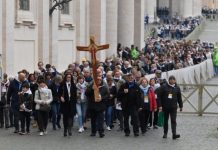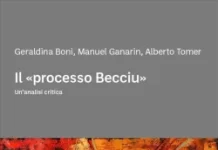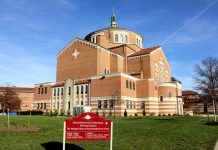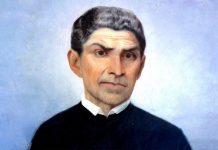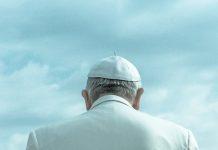The Vatican Secretary of State, Cardinal Pietro Parolin, speaks about Blessed John Paul I’s magisterial teaching on peace, the ongoing war in Ukraine, and the risk of a nuclear catastrophe.
Newsroom (03/09/2022 10:45 AM Gaudium Press) Cardinal Pietro Parolin, the Vatican Secretary of State, has urged against an escalation of the war in Ukraine, particularly regarding the use of atomic bombs, as the fighting extends past the six-month mark.
He shared his thoughts on the situation in an interview that aired on Thursday with Ignazio Ingrao, a journalist from Italian television, Tg1. The Cardinal also drew from the teachings of soon-to-be Blessed John Paul I as he called for peace and an end to the violence that began with Russia’s invasion of its neighbour in February.
John Paul I: Advocate of peace
The Cardinal noted that during his short pontificate, John Paul I regularly advocated for peace, a message that speaks to today’s war-scarred world.
In his Urbi et Orbi message in August 1978, John Paul I expressed support for all “worthy initiatives that can safeguard and increase peace in our troubled world,”, especially in light of the events of Camp David and the search for peace between the Jews and Palestinians. Cardinal Parolin also recalled the Angelus of 10 September 1978, when John Paul I again referred to Camp David and entrusted the leaders’ commitment to peace to the Lord.
He said peace was one of the highlights of the pontificate of the soon-to-be beatified Pope.
A model of humility
Cardinal Parolin recalled John Paul I as a model of humility, which, according to the Secretary of State, should be a pastor’s first, second, third, and fourth virtues.
He said that John Paul I was inspired by the humilitas of St. Augustine and St. Charles Borromeo. The then-Cardinal Ratzinger (Pope Emeritus Benedict XVI) said that John Paul I never sought prominent posts in the Church. When they came upon him, he lived them as a service and left humility as his spiritual legacy to the world.
Cardinal Parolin also highlighted that in those post-Conciliar years, marked with many controversies, John Paul I, Patriarch of Venice, was remembered mainly by the simple people. He added that John Paul I was “a pastor close to the people and attentive to the concrete needs of the people.”
“He was really a pontiff who devoted attention to the poor and who already wanted a poor Church at the service of the poor, not only a service of personal charity but also of planetary charity,” said Cardinal Parolin, adding that John Paul I was inspired by the teachings of Paul VI and the encyclical Populorum progressio.
The war in Ukraine
Reflecting on the war in Ukraine, the Cardinal said that he is “looking at it with extreme concern” as it has already been six months since it began, “with all the aftermath of the horror that this war entails.”
He further lamented, with particular concern, the difficulty in finding “prospects and possibilities for a solution through negotiation,” noting, however, that the Vatican remains available, “not closing the door to anyone” and trying to offer all those involved “the possibility of finding neutral ground in which to meet and in which to seek a solution that is… ‘a just and complete solution.'”
The Cardinal added that this is a solution that is just in the sense that it meets everyone’s needs – a difficult thing to achieve – and is complete because there is no opportunity for new problems and conflicts.
Appeal against escalation
Amid growing concerns about a potential catastrophe at the Zaporizhzhia nuclear power plant, with Russia and Ukraine exchanging accusations, Cardinal Parolin reiterated calls for peace.
“The appeal is that we avoid any escalation, especially with regard to the use of the atomic bomb, knowing what the consequences would be if there was even by mistake a misstep in that direction,” he said.
He further stressed the need for wisdom, restraint, and peaceful solutions, re-echoing the words of Pope Pius XII, which other Popes have repeated: “Nothing is lost with peace. Everything can be with war.”
Catholics in political debate
Turning to Italian politics, the Cardinal invited Catholics in Italy to be involved in the current political debate ahead of a general election later this month. He encouraged the faithful to “speak out and be taken into consideration” because of their history and the content of their proposals – including those inspired by the Church’s social doctrine – which can give effective and efficient answers to the country’s problems and politics.
This, of course, has to be done while accepting the discipline and guidelines of the party one belongs to, he said.
He stressed that good politics should put itself at the service of the country and its concrete needs, listening to the people and seeking common grounds on what can be really useful for the country.
– Raju Hasmukh
(Via Vatican News)








